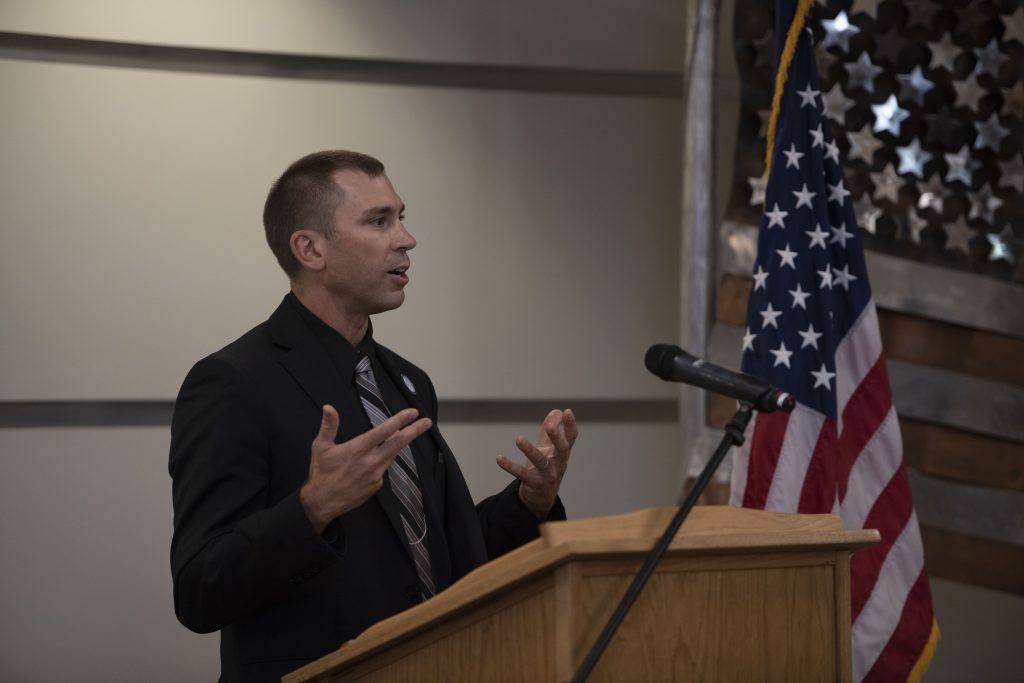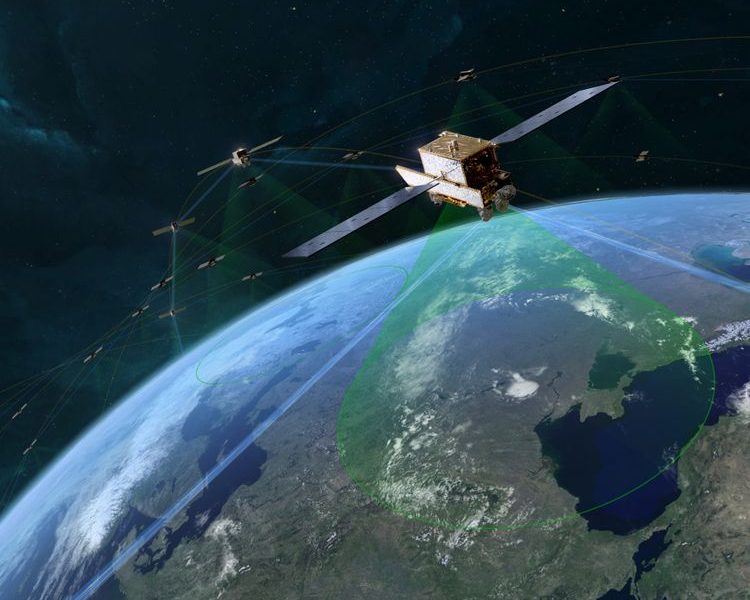RESTON, Va.—Space Development Agency director Derek M. Tournear, the driving force behind the Space Force’s Proliferated Warfighter Space Architecture, said the agency won’t change its strategy in the face of reports that Russia is developing a space-based nuclear weapon.
“We are not planning on making sure that all of our satellites are extremely resilient to such an attack,” Tournear said. “By the nature of our orbit at 1,000 kilometers … we are more hardened than most.”
Tournear acknowledged that such a weapon could be devastating to satellites in low-Earth orbit, creating both debris and long-lasting radiation. The Space Force’s goal of putting hundreds of new missile warning, missile tracking, and data transport satellites into orbit represents a massive expansion in the number and resilience of space-based assets in case of attack. But he acknowledged that a nuclear attack is more threatening than a direct ascent anti-satellite weapon launched from Earth, because it could damage the entire region of space, leaving debris and lasting radiation in the band.
With so many nodes in space, the PWSA was designed to be “essentially self-healing,” Tournear said Feb. 27 at the National Security Space Association conference. If one satellite fails or is attacked, others provide redundancy and resiliency and the data is rerouted, keeping capabilities uninterrupted.

“From day one, I’ve always said that proliferation gets us out of any point-to-point attack,” Tournear said Feb. 27. “I’m not worried about any point-to-point attack—direct ascent ASAT, directed energy—I’m just not. Proliferation flips that on its head.”
But a nuclear explosion could flip that strategy, as well. Just two weeks ago, White House National Security Council spokesman John Kirby confirmed media reports that the Russians are developing an anti-satellite weapon which, if deployed, would violate an international treaty banning nuclear weapons in space. The Russians have not deployed the weapon so far, but the threat of such a weapon is vast.
Since then, lawmakers, media, and the public have been electrified with concern about this newest new wrinkle to the calculus for attacking and defending satellites.
“A nuclear detonation in space would add significant radiation to orbits used by a number of U.S. military satellites, causing them to degrade in the weeks and months following the detonation unless they are specifically hardened against radiation,” wrote Clementine G. Starling and Mark J. Massa, both of the Atlantic Council. That’s in addition to the electromagnetic pulse that would fry the electronics of any satellites in the blast radius.
Asked if SDA was reconsidering how much nuclear hardening is necessary for the microelectronics it deploys in space, Tournear noted that a nuclear attack in space would be similar to the kinds of attacks he’s most worried about: “common mode failures”—problems or threats that could affect the entire constellation.
“The threats I think are still the most important and the most prescient to the ones that we’re working to mitigate are the common mode failures of cyber and supply chain interdiction,” Tournear said. “So that’s still, I think, the most likely and the most impactful. … Now a high-altitude nuclear detonation is not quite a common mode failure, but it’s closer.”
But Tournear noted that such an attack would be “indiscriminate,” destroying not only U.S. and allied satellites, but also the satellites of everyone else.
“At that point, it’s one of those ‘Black Swan’ events that we’re not going to completely change our architecture to try to address,” Tournear said. “We know obviously that would have a major impact on our architecture and our capabilities, if something like that went off in space. But it would have a major impact worldwide. It wouldn’t be attack on SDA, it wouldn’t be attack on the Space Force. It wouldn’t be attack on U.S., it would be an attack on the world. So we just would have to address it accordingly.”
Maj. Gen. Michael Traut, head of German Space Command, who said at the recent Munich Security Conference that “if somebody dares to explode a nuclear weapon in high atmosphere or even space, this would be more or less the end of the usability of that global commons.”
